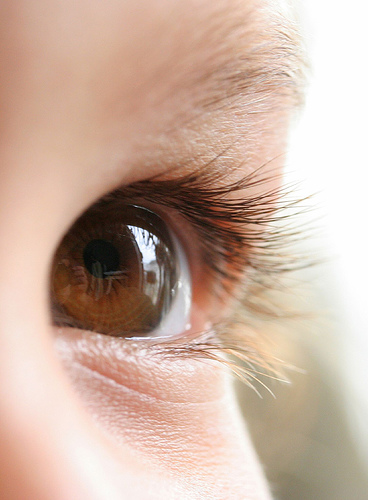Photo: peasap
I read somewhere that Madonna doesn’t let her children watch TV. Ever.
At all.
Hmmmm…..must be nice to have live-in child care help. If someone wanted to loan me an au pair, I wouldn’t let Kula Baby watch TV either. My husband and I started our parenting adventure with high hopes of no TV and lots of time spent reading together as a family in the evening.
It’s hard to type that with a straight face at this point.
The parenting reality set in soon after Kula Baby started eating solid foods. Dinner has to get made, right? If Kula Baby is…let’s say….HUNGRY and NEEDING ATTENTION….I might want to consider PUTTING IN BABY MOZART FOR 30 MINUTES OF PEACE! Call me crazy. I’m rotting his brain, right? Yeah? Well, guess what? On a real bad day it’s 60 minutes….I’ve been known to start the DVD over!!! He doesn’t seem to mind and lord knows I can use the extra 30 minutes to regroup for the upcoming bedtime routine. So the kid watches a little TV…not a lot….A LITTLE. We can’t all be Madonna.
The hubby and I still have dreams of reading in the evening instead of watching television or playing on the computer (an even harder habit to break). I did a little research on TV watching and health. It isn’t surprising that kids who watch more TV than average are more likely to be overweight, putting them at risk for health conditions such as type II diabetes. The American Academy of Pediatrics reports that increased TV watching may lead to a decrease in academic achievement. And most surprisingly, a current study in the Journal of Pediatrics reported that early TV viewings (ages 1 to 3 were studied) were linked to attention problems later (about age 7). TV watching linked to ADHD? The one year old kids studied watched 2.2 hours a day and the 3 year olds studied watched 3.6 hours per day. The authors concluded more research should be conducted on this subject matter. Subsequent studies have both confirmed these findings and questioned these findings so more conclusive research is needed. Increased TV watching also affects sleep patterns in infants and children.
The University of Michigan put out a Television Guide to help parents figure out the dos and don’ts of TV watching in the home. The highlights:
- Make very specific rules about when children can and cannot watch television. For example, do not allow TV during meals, homework or when parents are not around.
- AAP guidelines recommend that parents limit their children’s viewing to one to two hours per day at most.
- An alternative is to limit TV to one hour on school nights and two to three hours a day on weekends.
Alternatively, reading is associated with language and literacy development, phonemic awareness, phonics, vocabulary, reading comprehension and fluency.
So, I get it….reading is a better choice than watching TV. We’ve been reading to Baby Kula since he was 3 weeks old–the kid couldn’t see more than a few inches in front of his face but by golly we were going to read to him anyway! I think it’s safe to say we’re off to a good start with the reading in our house. But…. sorry American Academy of Pediatrics—I’m still going to let him watch his 30 minutes (O.K. SOMETIMES 60 MINUTES) of Baby Einstein a day. I’ll risk it.


